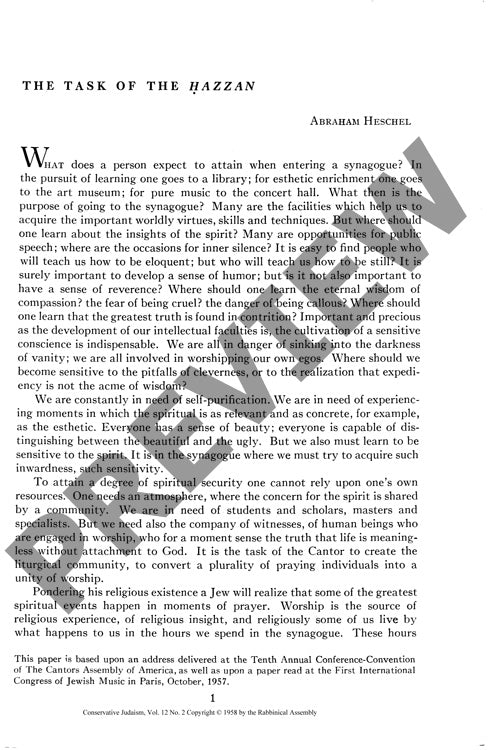The Task of the Hazzan
Couldn't load pickup availability
The modern synagogue faces a crisis of authenticity, as cantorial music increasingly prioritizes technical virtuosity over spiritual meaning. Through phenomenological and theological analysis of contemporary worship practices, this research reveals how the hazzan's role has evolved from sacred interpreter to performer, contributing to the depersonalization of communal prayer. Qualitative observation and examination of liturgical sources demonstrate that effective cantorial leadership requires a delicate balance: musical excellence must be grounded in deep spiritual commitment and mastery of liturgical texts (nusach). The erosion of traditional chant patterns, coupled with diminishing congregational participation, poses significant obstacles to meaningful worship. Historical examination of Jewish prayer traditions, combined with critical assessment of modern practices, shows that the hazzan's fundamental purpose lies in creating authentic liturgical community rather than delivering musical performance. Personal reflection and textual analysis support the need for liturgical revival centered on reverence, textual comprehension, and the harmonious integration of word and music. These findings indicate that cantorial education must extend beyond aesthetic training to encompass intellectual and spiritual development, enabling the hazzan to truly serve as both representative of and inspiration for the worshipping community in facilitating genuine divine encounter.

More Information
-
Physical Description
-
Publication Information
Published 1958
ISBN
-
Publication Credits
Abraham Heschel

